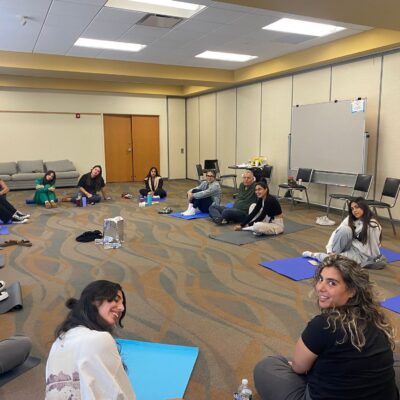Lean, Mean, and Clean: a New Model For Educating Educators
By Menachem Posner
When Rabbi Zalman Shneur founded the Menachem Education Foundation in 2008 with the goal of facilitating elevated learning opportunities in the Jewish world, he had a challenge: How to create a comprehensive teacher training program on a shoestring budget?
He soon encountered a second challenge. Often following years of exclusive Torah study, many Orthodox teachers are raring to enter the workforce immediately to support their growing families. This precludes the possibility of enrolling in traditional training programs that often delay earnings.
The result was TIP (Teacher Induction Program), with training concentrated into 8 intensive days of during the summer and then interspersed throughout a year when all inductees teach in their own classrooms under the careful guidance of an experienced mentor.
“The advantages of the arrangement are manifold,” says Shneur. “First of all, the learning takes on immediacy when it’s being applied in real time by a real teacher in the classroom. When a teacher knows he or she has a class full of children waiting for him or her, he or she is going to be able to immediately find – and then apply – the techniques best suited to his or her situation. And having a mentor allows him or her to actually achieve that.”
Another major advantage is the cost. While traditional programs are heavy with expensive classroom time and infrastructure, TIP’s participants’ learning takes place primarily in their own classrooms, meaning that the program’s budget is as low as $7,500 per inductee, a small portion of which is covered by tuition.
TIP’s methodology focuses on DDI (data driven instruction), wherein teachers use quizzes and tests to constantly monitor each child’s progress. According to Dovid Blasberg, a second-year secular studies teacher at the United Lubavitcher Yeshivoth in Brooklyn, the results were immediate. “Using the tools I was given,” he says, “I was able to not just see who is passing their spelling tests and who is failing, but to actually ascertain whether the failure was due to carelessness or inability and then act accordingly.”
Like all of TIP’s inductees, Blasberg meets weekly with an experienced teacher or principal, who monitors his progress and makes recommendation. Blasberg’s coach is Rabbi Zelig Silber, who directs TIP and teaches Judaic studies at Cheder Chabad of Monsey.
Silber explains that the schools have been more than willing to hire TIP inductees. “Knowing that they’re getting a rookie teacher who’s put in time during the summer and will then receive constant coaching on this level is invaluable to them,” says Silber who has directed TIP since 2012.
Throughout the year, inductees also participate in monthly (or biweekly) sessions and have homework to complete. Every month, each inductee is obligated to demonstrate on paper how he or she improved in another area of education.
Every two months, they give a baseline assessment of their teaching as well as plans for future improvement. The coaches also observe their proteges in the classroom, ensuring that each teacher is constantly improving his or her game.
With more than 100 alumni stemming from a Brooklyn-based program for men and an online version for women, Shneur says that the program has proven that “you can get powerful results on the ground for much less than people think. You just need to marshal existing resources and focus on what really works.”

 Add EJP on Google
Add EJP on Google









